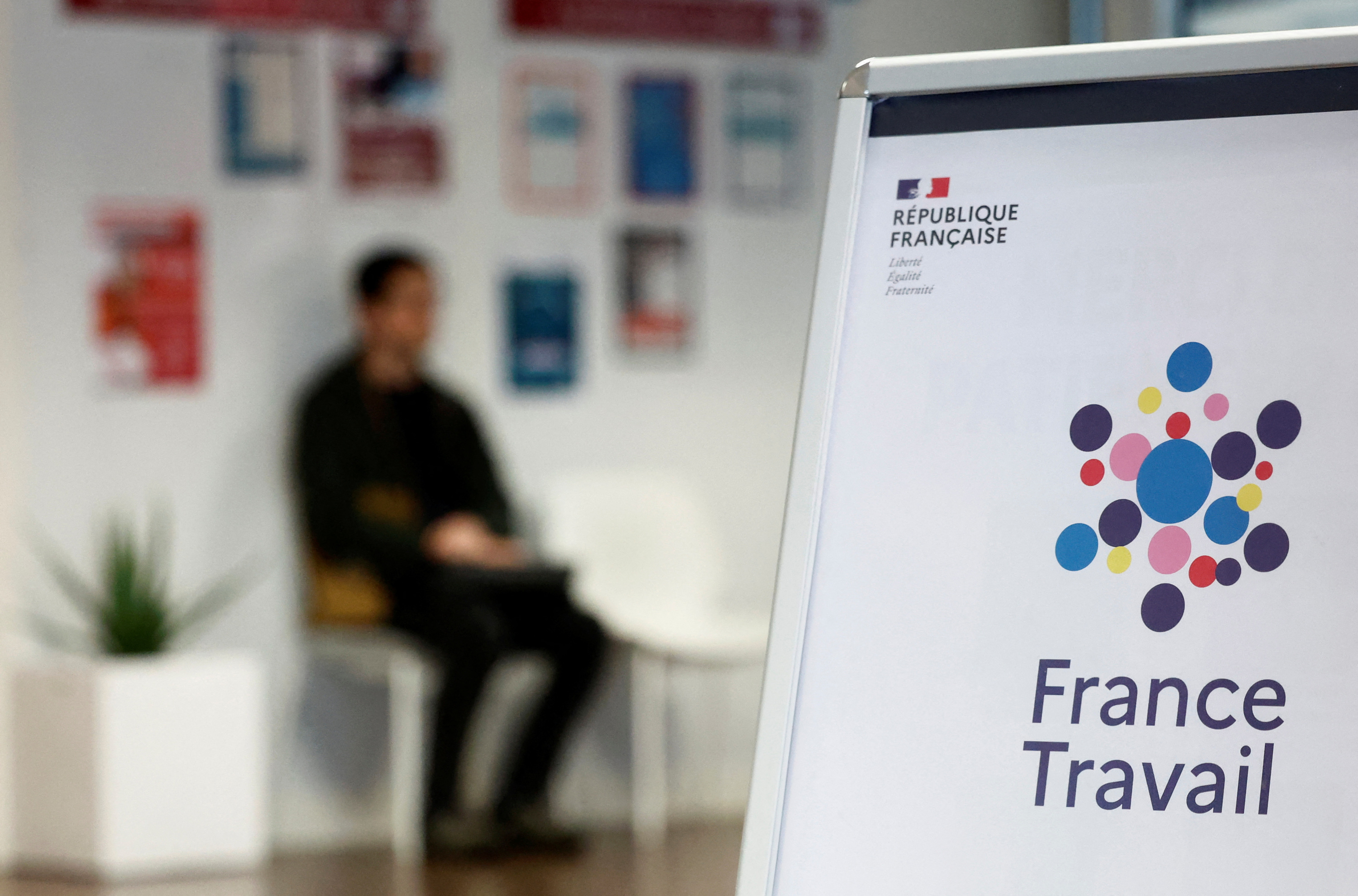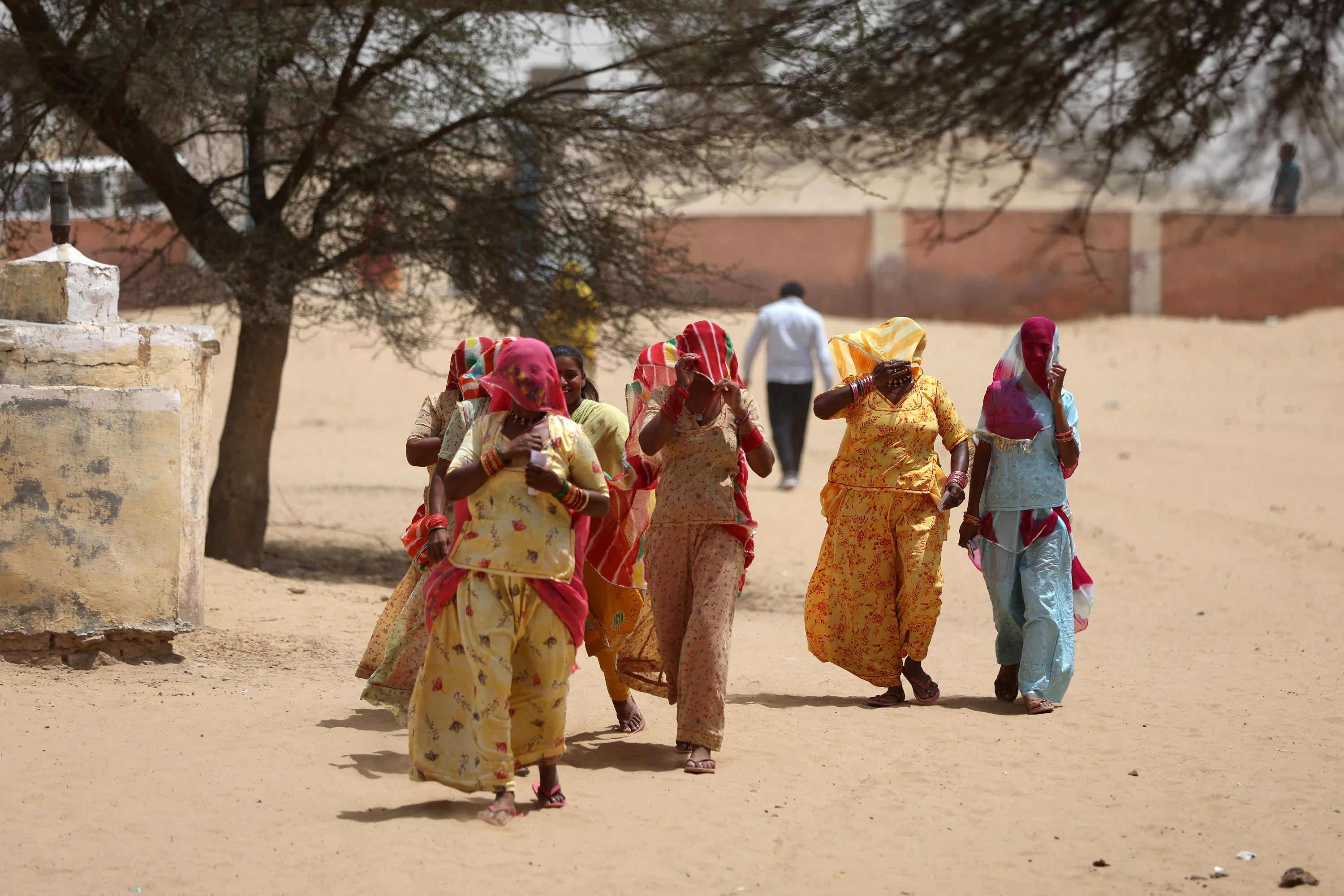For this fifty-year-old "nose", it is enough to smell, once, a bottle of an imported perfume to reproduce it and sell it at a much more accessible price.
"I don't have a big workshop, but I have more essences than a big factory in France, and I have this nose that I've been training since I was 15," says this little man with a mustache. , nicknamed Abu Nour.
His trade, which he inherited from his maternal uncles, has been passed down in the family for a hundred years, and he is now teaching it to his son who assists him.
Located in an old caravanserai, between the spice souk from which the scent of cinnamon and cardamom escapes and that of incense, his tiny shop, which cannot accommodate more than three customers at a time, is always full.
Young and old parade.
Some show him on their phones images of imported perfumes that they ask him to imitate, others want to buy the fragrance that the perfumer advises them.
Cham al-Falah, 24, came to ask her to compose for her a perfume similar to the American brand to which she was loyal.
"Perfume for young girls is something essential, it's like eating or drinking," says this young management graduate, elegant under her cream veil.
"Previously, I bought foreign perfumes, but I can no longer afford it, and besides, imported products are more and more inaccessible in Syria," she explains.
- Economic crisis -
While Damascus, the capital, was largely spared the war in Syria sparked by the crackdown on pro-democracy protests in 2011, the economy across the country has been battered by a decade of fighting and heavy international sanctions.
On the parallel market, the Syrian currency has since lost almost 99% of its value and the average salary of an employee is now only worth around 25 US dollars.
A bottle of imported perfume today is worth at least a hundred dollars.
But Mohammad al-Masri prides himself on being able to recreate the most luxurious perfumes almost identically, and sells them for less than 30,000 pounds, or about six dollars.
In his shop, customers take their time, smelling the dozens of vials, or watching him juggle with the essences.
His son brings him the bottles from a nearby warehouse.
On a rectangular table, Abou Nour has lined up dozens of vials: the essences of jasmine rub shoulders with those of Damask rose or musk.
And he lined the wall behind him with photos of the perfumes of the world's major brands, cut from old magazines.
Some loyal customers come from afar, like Ahmad Dorra, who traveled 50 kilometers from the mountainous town of Zabadani to buy five vials of perfume for his family.
"I don't know much about perfumes, but I trust Abou Nour's nose," says this peasant, his head covered by a red checkered keffiyeh.

 Germany: the trial of an AfD leader, accused of chanting a Nazi slogan, resumes this Tuesday
Germany: the trial of an AfD leader, accused of chanting a Nazi slogan, resumes this Tuesday New York: at Columbia University, the anti-Semitic drift of pro-Palestinian demonstrations
New York: at Columbia University, the anti-Semitic drift of pro-Palestinian demonstrations What is Akila, the mission in which the Charles de Gaulle is participating under NATO command?
What is Akila, the mission in which the Charles de Gaulle is participating under NATO command?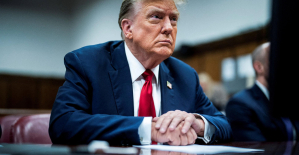 Lawyer, banker, teacher: who are the 12 members of the jury in Donald Trump's trial?
Lawyer, banker, teacher: who are the 12 members of the jury in Donald Trump's trial? What High Blood Pressure Does to Your Body (And Why It Should Be Treated)
What High Blood Pressure Does to Your Body (And Why It Should Be Treated) Vaccination in France has progressed in 2023, rejoices Public Health France
Vaccination in France has progressed in 2023, rejoices Public Health France Food additives suspected of promoting cardiovascular diseases
Food additives suspected of promoting cardiovascular diseases “Even morphine doesn’t work”: Léane, 17, victim of the adverse effects of an antibiotic
“Even morphine doesn’t work”: Léane, 17, victim of the adverse effects of an antibiotic Orthodox bishop stabbed in Sydney: Elon Musk opposes Australian injunction to remove videos on X
Orthodox bishop stabbed in Sydney: Elon Musk opposes Australian injunction to remove videos on X One in three facial sunscreens does not protect enough, warns L'Ufc-Que Choisir
One in three facial sunscreens does not protect enough, warns L'Ufc-Que Choisir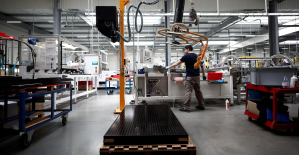 What will become of the 81 employees of Systovi, a French manufacturer of solar panels victim of “Chinese dumping”?
What will become of the 81 employees of Systovi, a French manufacturer of solar panels victim of “Chinese dumping”? “I could lose up to 5,000 euros per month”: influencers are alarmed by a possible ban on TikTok in the United States
“I could lose up to 5,000 euros per month”: influencers are alarmed by a possible ban on TikTok in the United States Dance, Audrey Hepburn’s secret dream
Dance, Audrey Hepburn’s secret dream The series adaptation of One Hundred Years of Solitude promises to be faithful to the novel by Gabriel Garcia Marquez
The series adaptation of One Hundred Years of Solitude promises to be faithful to the novel by Gabriel Garcia Marquez Racism in France: comedian Ahmed Sylla apologizes for “having minimized this problem”
Racism in France: comedian Ahmed Sylla apologizes for “having minimized this problem”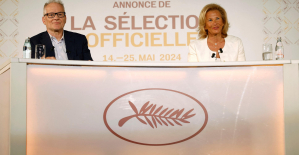 Mohammad Rasoulof and Michel Hazanavicius in competition at the Cannes Film Festival
Mohammad Rasoulof and Michel Hazanavicius in competition at the Cannes Film Festival Skoda Kodiaq 2024: a 'beast' plug-in hybrid SUV
Skoda Kodiaq 2024: a 'beast' plug-in hybrid SUV Tesla launches a new Model Y with 600 km of autonomy at a "more accessible price"
Tesla launches a new Model Y with 600 km of autonomy at a "more accessible price" The 10 best-selling cars in March 2024 in Spain: sales fall due to Easter
The 10 best-selling cars in March 2024 in Spain: sales fall due to Easter A private jet company buys more than 100 flying cars
A private jet company buys more than 100 flying cars This is how housing prices have changed in Spain in the last decade
This is how housing prices have changed in Spain in the last decade The home mortgage firm drops 10% in January and interest soars to 3.46%
The home mortgage firm drops 10% in January and interest soars to 3.46% The jewel of the Rocío de Nagüeles urbanization: a dream villa in Marbella
The jewel of the Rocío de Nagüeles urbanization: a dream villa in Marbella Rental prices grow by 7.3% in February: where does it go up and where does it go down?
Rental prices grow by 7.3% in February: where does it go up and where does it go down? Europeans: “All those who claim that we don’t need Europe are liars”, criticizes Bayrou
Europeans: “All those who claim that we don’t need Europe are liars”, criticizes Bayrou With the promise of a “real burst of authority”, Gabriel Attal provokes the ire of the opposition
With the promise of a “real burst of authority”, Gabriel Attal provokes the ire of the opposition Europeans: the schedule of debates to follow between now and June 9
Europeans: the schedule of debates to follow between now and June 9 Europeans: “In France, there is a left and there is a right,” assures Bellamy
Europeans: “In France, there is a left and there is a right,” assures Bellamy These French cities that will boycott the World Cup in Qatar
These French cities that will boycott the World Cup in Qatar Serie A: Bologna surprises AS Rome in the race for the C1
Serie A: Bologna surprises AS Rome in the race for the C1 Serie A: Marcus Thuram king of Italy, end of the debate for the position of number 9 with the Blues?
Serie A: Marcus Thuram king of Italy, end of the debate for the position of number 9 with the Blues? Milan AC-Inter Milan: Thuram and Pavard impeccable, Hernandez helpless… The tops and flops of the derby
Milan AC-Inter Milan: Thuram and Pavard impeccable, Hernandez helpless… The tops and flops of the derby Ligue 2: Auxerre leader, Bordeaux in crisis, play-offs... 5 questions about an exciting end of the season
Ligue 2: Auxerre leader, Bordeaux in crisis, play-offs... 5 questions about an exciting end of the season






